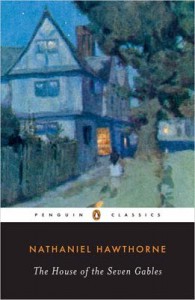The House of the Seven Gables (Hawthorne)

Somehow I missed this during my omnivorous reading of the 19th century gothic in my undergraduate years. I read it now from the point of view of someone who distinctly resembles fractious, unsightly Hepzibah far more than the idealized "little woman" Phoebe (though perhaps I have always been more a Hepzibah than a Phoebe). In any case, the emphasis on Hepzibah's incapabilities and infirmities, and her constant scowl, was the one truly uncomfortable note for me in this otherwise delightful excursion into Hawthorne's extravagant and oratorical chessboard of symbols and motifs. I'm aware that Hepzibah's offputting scowl, which does not at all represent her actual mood or actual morals, is the counterpart of the Judge's false and beaming smile, and both are equally insisted upon beyond any reasonable requirement for description so as to force the careless reader to consider what they actually represent. But I must admit, at the umpteenth reference to the ugly Hepzibah scowl, I was provoked into growling, "oh just give it a rest, already, Nathaniel!" Subtlety - not his forte.
Chapter 18 is extraordinary writing. I started reading it in a slightly irritated mood, because it seemed that the author was going to take a simplistic trope (the narrator doesn't realize that Judge Pyncheon is dead) and just make a chapter out of it without doing much. Instead, it becomes an absolute symphony of rhetorical, imaginative expansion of the would-haves and could-haves surrounding the mundane fact of a nasty man dead of congenital heart failure in a decaying old house.
I have a very small and select folder on my Kindle called, "read but keeping". In goes The House of Seven Gables.
 5
5



